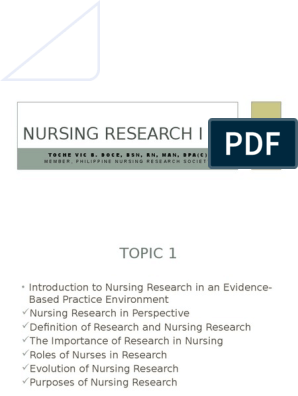0% found this document useful (0 votes)
56 views10 pagesCHAPTER 1. LIM-IT. Et. Al-1
This study investigates the challenges and coping mechanisms of parents raising children with disabilities in Guiuan, Eastern Samar, highlighting the emotional, social, and financial burdens they face. It aims to provide insights into their lived experiences and the support systems needed to alleviate their struggles, while also emphasizing the importance of societal empathy and targeted programs. The findings will benefit various stakeholders, including parents, healthcare providers, educators, and government agencies, by fostering greater understanding and support for families with children with disabilities.
Uploaded by
Perlyn Rose Padron OdevilasCopyright
© © All Rights Reserved
We take content rights seriously. If you suspect this is your content, claim it here.
Available Formats
Download as DOCX, PDF, TXT or read online on Scribd
0% found this document useful (0 votes)
56 views10 pagesCHAPTER 1. LIM-IT. Et. Al-1
This study investigates the challenges and coping mechanisms of parents raising children with disabilities in Guiuan, Eastern Samar, highlighting the emotional, social, and financial burdens they face. It aims to provide insights into their lived experiences and the support systems needed to alleviate their struggles, while also emphasizing the importance of societal empathy and targeted programs. The findings will benefit various stakeholders, including parents, healthcare providers, educators, and government agencies, by fostering greater understanding and support for families with children with disabilities.
Uploaded by
Perlyn Rose Padron OdevilasCopyright
© © All Rights Reserved
We take content rights seriously. If you suspect this is your content, claim it here.
Available Formats
Download as DOCX, PDF, TXT or read online on Scribd
/ 10






























































































